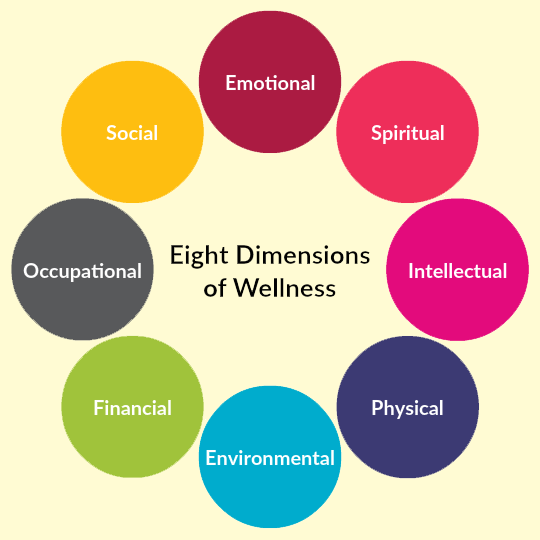In today’s fast-paced world, maintaining good health and wellness is more critical than ever. With work, family, and social obligations pulling us in different directions, finding balance in our physical and mental well-being can feel overwhelming. Fortunately, with the right strategies, you can achieve a healthier, happier life. This article will provide you with essential health and wellness tips to guide you on your journey.
The Importance of a Healthy Lifestyle
Before diving into the tips, it’s important to understand why a healthy lifestyle is essential. Good health allows you to live life to the fullest, both physically and mentally. It enhances your energy levels, improves mood, increases productivity, and reduces the risk of chronic diseases like heart disease, diabetes, and obesity.
Wellness, on the other hand, goes beyond just physical health. It’s an active process of becoming aware of and making choices toward a healthy and fulfilling life. This includes emotional, social, and mental well-being. Balancing all aspects of wellness is crucial for leading a well-rounded and content life.
1. Prioritize Nutrition
One of the most important aspects of maintaining good health is proper nutrition. What you eat has a direct impact on how you feel and perform daily. A diet rich in fruits, vegetables, whole grains, and lean proteins can provide the essential nutrients your body needs to function efficiently.
Tips for Better Nutrition:
- Eat a Balanced Diet: Focus on whole, unprocessed foods. Include a variety of fruits, vegetables, lean meats, and whole grains.
- Stay Hydrated: Water is essential for almost every bodily function. Aim to drink at least 8 glasses of water daily.
- Limit Sugary and Processed Foods: These can lead to energy crashes, weight gain, and other health issues.
- Practice Portion Control: Even healthy foods should be eaten in moderation. Pay attention to portion sizes to avoid overeating.
2. Stay Physically Active
Physical activity is another cornerstone of good health. Regular exercise has a multitude of benefits, including improving cardiovascular health, boosting mental health, and helping with weight management. It also enhances flexibility, balance, and muscle strength, reducing the risk of injuries as you age.
Tips for Staying Active:
- Exercise Regularly: Aim for at least 30 minutes of moderate exercise most days of the week. This could include walking, jogging, cycling, or swimming.
- Incorporate Strength Training: Lifting weights or doing bodyweight exercises helps maintain muscle mass and improve metabolism.
- Stay Active Throughout the Day: If you have a desk job, make an effort to move around every hour. Take the stairs, walk during lunch breaks, or do simple stretches at your desk.
3. Prioritize Mental Health
Mental health is just as important as physical health. Stress, anxiety, and depression can negatively impact your overall wellness. Managing your mental health involves developing strategies to cope with stress, staying socially connected, and taking time for self-care.
Tips for Mental Wellness:
- Practice Mindfulness or Meditation: These techniques can help reduce stress and improve focus. Even five minutes a day can make a difference.
- Get Enough Sleep: Aim for 7-9 hours of quality sleep each night. Lack of sleep can affect your mood, concentration, and overall health.
- Talk to Someone: Whether it’s a friend, family member, or therapist, sharing your feelings and concerns can help reduce the emotional burden.
- Engage in Hobbies: Taking time to do things you enjoy can boost your mood and provide a sense of accomplishment.
4. Foster Social Connections
Human beings are social creatures, and maintaining strong relationships is a vital part of wellness. Good social connections can improve your mental and emotional health, provide support during tough times, and even help you live longer.
Tips for Building Social Wellness:
- Stay Connected with Loved Ones: Make time for family and friends, even if it’s just a quick phone call or a virtual meeting.
- Join a Group or Club: Engaging in activities with like-minded people can boost your sense of community and belonging.
- Volunteer: Helping others can provide a sense of purpose and fulfillment, while also broadening your social circle.
5. Get Regular Health Checkups
Preventive care is key to maintaining long-term health. Regular checkups allow your doctor to detect potential health issues early, before they become serious. Additionally, routine screenings for cholesterol, blood pressure, and other markers can help you track and manage your health more effectively.

Tips for Preventive Care:
- Schedule Annual Checkups: Make it a priority to see your doctor once a year for a physical exam and any necessary screenings.
- Stay Up-to-Date on Vaccines: Vaccinations can prevent a range of serious illnesses.
- Don’t Ignore Warning Signs: If you experience unusual symptoms, seek medical advice promptly.
6. Manage Stress Effectively
Chronic stress can have serious effects on both your physical and mental health. It can lead to headaches, digestive issues, sleep problems, and a weakened immune system. Finding healthy ways to manage stress is critical for overall wellness.
Tips for Stress Management:
- Identify Stress Triggers: Keep a journal to track what causes you stress and how you react to it.
- Practice Deep Breathing: Taking slow, deep breaths can activate your body’s relaxation response.
- Delegate Tasks: Don’t be afraid to ask for help when you’re feeling overwhelmed.
- Take Breaks: Whether it’s a 10-minute walk outside or a weekend getaway, regular breaks are essential to preventing burnout.
7. Sleep Well
Getting enough rest is often overlooked in discussions about health, but sleep is fundamental to both physical and mental well-being. Quality sleep improves mood, enhances cognitive function, and supports physical health by allowing the body to repair and regenerate.
Tips for Better Sleep:
- Create a Bedtime Routine: Go to bed and wake up at the same time every day, even on weekends.
- Limit Screen Time Before Bed: Blue light from phones and computers can interfere with sleep. Try to avoid screens at least an hour before bedtime.
- Make Your Bedroom a Sleep Sanctuary: Keep your room dark, quiet, and cool to promote better sleep.
- Avoid Heavy Meals Before Bed: Eating too close to bedtime can make it harder to fall asleep.
8. Cultivate Gratitude
Practicing gratitude can have a profound impact on your overall happiness and well-being. Studies show that people who regularly express gratitude experience lower levels of stress, better sleep, and stronger relationships.
Tips for Practicing Gratitude:
- Keep a Gratitude Journal: Write down three things you’re grateful for each day.
- Express Appreciation: Take time to thank others for their kindness or support.
- Focus on the Positive: When faced with challenges, try to see the silver lining or lessons that can be learned.
Table of Contents
Conclusion
Health and wellness are not just about eating right and exercising; they involve a comprehensive approach to physical, mental, and emotional well-being. By prioritizing nutrition, staying active, managing stress, fostering social connections, and getting enough sleep, you can create a balanced and fulfilling lifestyle. Remember, wellness is a journey, not a destination, and small, consistent changes can lead to lasting improvements in your health. Start implementing these tips today for a healthier and happier tomorrow!





